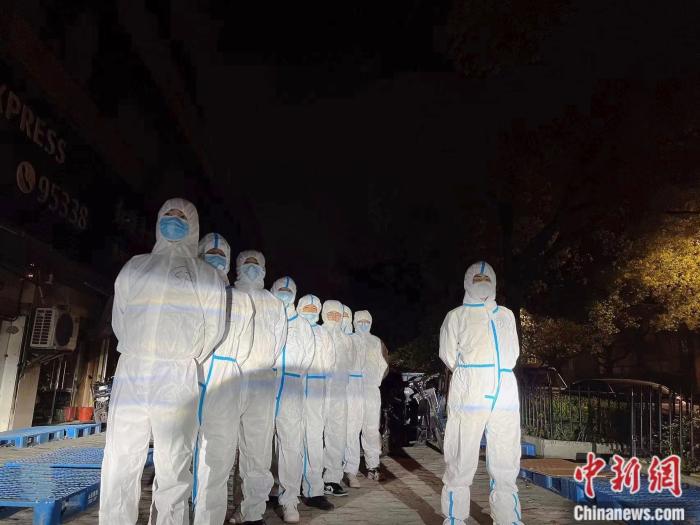April 14, 2022
BEIJING – On the evening of April 10, Yang Yaosen, a delivery man in Shanghai, sat by the door of a local neighborhood committee to take a break. He had just finished the day’s work of delivering necessities for residents under lockdown in the city.
Soon, he would again go out in the dark night, rushing more supplies to people eagerly waiting for him. Unlike others, he paid for all the goods out of his own pocket.
According to the news portal Chinanews, in the past 20 days, Yang Yaosen has spent nearly 70,000 yuan (about $10,996) to buy food and other essentials for people in need.
With a new round of citywide screening test starting March 28, areas lying to the east of Huangpu River, known as Pudong, were under temporary closed-off management due to the spiking numbers of COVID-19 infections. This became a turning point for the life of Yang.
Yang and his fellow couriers were under quarantine at their places. Some couriers found it hard to feed themselves as online food delivery services they used to rely on for food weren’t available any more.
Yang, who is in charge of a delivery branch of his company, also works as a member of the neighborhood office for epidemic prevention and control, started considering getting more food and other supplies.
On the first day of action, he bought 100 items of supplies to share with his fellow workers. But he later found that a lot of other people were also worrying about food. So he “expanded his voluntary service” to more people.
Yang admitted it was difficult to get supplies in the first few days and he had to buy things from scalpers at high prices or grocery stores that were still open. Worrying that other couriers wouldn’t be able to afford the high bills soon, he gave them all he bought for free.
With more people asking for help, Yang insisted not taking money from them.
“I get along very well with the residents here as I do the delivery work. How could I charge them at a time like this? Especially for the families with pregnant women, little kids or those older people who live alone,” Yang said.

A volunteer team organized by Yang Yaosen. [Photo/Chinanews.com]
For elderly people, the medicines they take daily are much-needed, and some psychotropic medicines can only be prescribed by doctors and purchased from hospitals. For this, Yang has to go through the whole process in the hospital, including explaining patients’ conditions to the doctors.
“Someone has to do this work,” Yang said.
“When I give things to the hands of people who really need them, I can see the gratitude in their eyes. My heart feels warm and I think all I do is worth.”
There’s an old man in a residential community nearby who Yang has played chess with before. According to Yang, the old man is reticent and not good at expressing himself. Yang was thinking about him after his residential community was locked down and called him later.
The old man turned down his offer for food and other supplies, but Yang didn’t give up. He brought the things to his home and put the things at the doorway. When he was turning to leave, the old man stopped him and handed him a bunch of bananas without a word.
“I am not really into bananas, but I took them anyway,” Yang said.
Some people transferred money to him through WeChat, usually an amount larger than the value of the item delivered, but Yang didn’t accept it.
Knowing that Yang usually works the whole day and comes home late, staff at the reception desk of the apartment building he lived in would wait him back every day and prepared fresh meals for him.
Yang also organized a volunteer team consisting of nine people to provide services to more than 200 residential communities.
“I want to do more for the city. Everyone in Shanghai is expecting the comeback of normal life,” Yang said.


